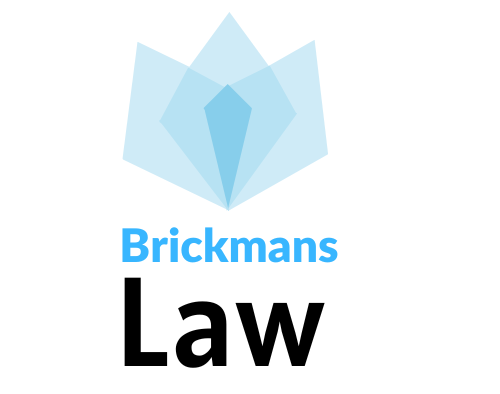Unravelling the Dilemma of a Legal Practitioners Involvement in Real Estate Sale and Management
Generally, the business of real estate sale and management includes the buying, selling or renting of a property; building a home or land; managing of property such as land and buildings as investments and so on. This business is usually operated by licensed Real Estate Practitioners of Real Estate Agents. Although the buying and selling of land is an aspect of real estate business, it is also connected with an aspect of law-conveyancing. The Black’s Law Dictionary defines conveyancing as “that part of the lawyer’s business which relates to the alienation and transmission of property and other rights from one person to another, and to the framing of legal documents intended to create, define, transfer, or extinguish rights. It therefore includes the investigation of the title to land, and the preparation of agreements, wills, articles of association, private statutes operating as conveyances, and many other instruments in addition to conveyances properly so called”. What is clear from this definition is that conveyancing is exclusively a Lawyer’s business. In other words, only a Lawyer can prepare land instruments.
The Legal Practitioners Act (LPA) as well as the Practice Guidelines for Real Estate Practitioners both contain salient provisions that recognise this exclusive right of Legal Practitioners. Thus, S22 (1) LPA provides that only a legal practitioner can prepare an instrument relating to immovable property, and any person other than a legal practitioner who renders such service shall be guilty of an offence. While the Practice Guidelines for Real Estate Practitioners provides that Licensed Real Estate Practitioner shall not prepare any legal document pertaining to any transaction handled by him but such a document must be prepared by a Legal Practitioner and the fees shall not be more than 12.5 per cent of the total consideration.
With the average property transactions running into millions of naira, Lawyers are frequently involved in property transactions in their capacity as legal practitioners, or as agents referring prospective buyers to intending property sellers. Meanwhile, Section 7 (2) Rules of Professional Conduct (RPC) provides that a lawyer shall not practice as a legal practitioner while personally engaged in the business of buying and selling commodities; or the business of a commission agent or any other business declared by the Bar Council as incompatible with the legal profession. It has thus been argued by some writers that this section prohibits a legal practitioner from engaging in Real Estate business, particularly the sale of land or as a commissioned agent. A critical examination of the controversial RPC and applicable judicial decisions would reveal that there is no such limitation.
Analysis of Section 7 Rules of Professional Conduct
The controversy surrounding the propriety of a legal practitioners involvement in real estate and sale management is hinged on the interpretation of S7 (2) Rules of Professional Conduct which is copiously restated thus:
A lawyer shall not practice as a legal practitioner while personally engaged in—-
(a) the business of buying and selling commodities;
(b) the business of a commission agent;
(c) Such other trade or business which the Bar Council may from
time to time declare to be incompatible with practice as a lawyer or
as tending to undermine the high standing of the profession.
Many are of the opinion that this section prohibits a legal practitioner from carrying on the business of sale of land (commodities) or a commissioned agent in land transactions. Now, the above provision of the rule may seem unambiguous until one begins to interrogate certain terms in the provision. For instance, what does the provision imply by “personally engaged in” or “in the business of”? If a law firm sells a land, and one counsel prepares documentation while another acts as the agent, will it be a violation of the rule? Furthermore, where a legal practitioner acts as agent for commission in a single or a few transactions, can he be said to be engaged ‘in the business’ of a commission agent?
Indeed, what seems clear from the provision of Rule 7(2)(b) is that it is a rule against double portions, in the sense that it expressly prohibits a lawyer from acting personally as legal practitioner and commission agent in the same transaction. This view of the provisions seems to appeal to logic because a legal practitioner in a property transaction has key responsibilities to conduct due diligence, which will be adversely hampered if he is a party interested in receiving commission from the finalisation of the transaction. Therefore, to avoid this conflict of interest, the rule makes it mandatory that where a legal practitioner personally acts in a land transaction, he should not be the commissioned agent. This is however just one possible interpretation which was not the interpretation considered in NBA v. Ibebunjo.
NBA v Ibebunjo case
The Legal Practitioners Disciplinary Committee (LPDC) in the case of NBA v Ibebunjo interpreted Rule 7 (2) RPC to mean that the business of selling land is incompatible with the practice of law. In that case, a legal practitioner by name Anozie A Ibebunjo while acting as a land vendor defrauded the petitioner of the sum of N1.6million under the pretence that he sold him 8 plots of land. The committee decided as follows “ …it is clear beyond peradventure that the business of selling land is a trade or business incompatible with the practice of law. Rule 7(3) clearly provides the category of businesses that are incompatible with the practice of law. From what we have reproduced above, the respondent was clearly playing with fire when he was using the platform of his legal practice to sell land. The justice of this case demands that we allow him to go full time into his main business of selling land and to leave the business of practising law to those who are bona fide legal practitioners.”
This decision, although carefully thought out, cannot pass intense scrutiny when one considers the fact that a legal practitioner can in the regular course of business prepare deeds of assignment and other land instruments on behalf of a client. Moreso, contrary to the opinion of the learned Seniors, Rule 7 (3) does not state the category of businesses that are incompatible with law practice, on the contrary it highlights businesses that are compatible. Moreover, it is worthy to note that this case was a decision of the LPDC and not the decision of a competent court. Therefore, caution must be had in reliance on the opinion of the learned Seniors that decided the matter as it does not lay a sweeping authority on the interpretation of Rule 7 (2)(b) of the RPC. In addition, the issues which came up before the committee was not the question whether Rule 7(2)(b) was breached, rather it was the preponderance of violations of the Rules of Professional Conduct which led to the decision of the committee.
In light of the above, it is submitted that the NBA v Ibebunjo case is not a reliable authority for determining the propriety of a legal practitioner’s involvement in Real estate business. A better and binding authority is the decision of the court in Ukah & ors v Onyia & ors.
Ukah & ors v Onyia & ors
In this case, the 1st Appellant engaged the services of several estate agents, including a legal practitioner(the 2nd respondent) for the sale of a landed property on an agreement of 5% commission reward. The 2nd respondent’s client eventually bought the property, and the 1st Appellant refused to pay the 2nd respondent his 5% commission as agreed. The 2nd respondent then sued the 1st Appellant for the recovery of his compensation ie. the 5% commission. The trial court gave judgement in his favour.
It is against that background that the 1st appellant filed an appeal for the court to determine several issues, including whether the 2nd respondent had the legal capacity to act as an estate agent. In determining the issue of the 2nd respondents capacity to act as a legal practitioner, the Court of Appeal considered Rule 7(2) of the RPC and gave a more robust and binding view to the provision. According to the appellate Court:
” …Rule 7(2)(b) of the Rules of Professional Conduct for Legal Practitioners, 2007, therefore forbids a lawyer from practising as a legal practitioner while personally engaged in the business of a commission agent. A proper dissection of this Rule shows that what is forbidden is practising as a lawyer, while engaged in the business of a commission agent. In other words, the active part of the provision/prohibition is practice as a legal practitioner. The provision does not forbid a legal practitioner from engaging in the business of a commission agent. Rather, it forbids a legal practitioner engaged in the business of commissioned agent from practising as a legal practitioner while so engaged” Per OGUNWUMIJU, J.C.A.
What can be gleaned from the above is that a legal practitioner is not forbidden from selling land as a commissioned agent but cannot also act as a legal practitioner while so engaged in the business of selling land.. In other words, you cannot be a legal practitioner and commission agent in the same land transaction. This approach is both logical and equitable, since equity leans against double portions.
Conclusion
The legal profession is a noble profession which is highly regulated to ensure that the high standing of the profession is not undermined. From the foregoing analysis of statutes and precedents, it is clear that the law does not restrict a legal practitioner’s involvement in Real Estate business. As a matter of fact, a legal practitioner’s involvement in real estate business is unavoidable because S22 (1) LPA as well as the Practice Guidelines of Real Estate Practitioners confers him with the exclusive right of preparing land instruments, which is fundamental in the sale of land. What the law however prohibits is a Lawyer acting as a legal practitioner and a commissioned agent in the same transaction.




